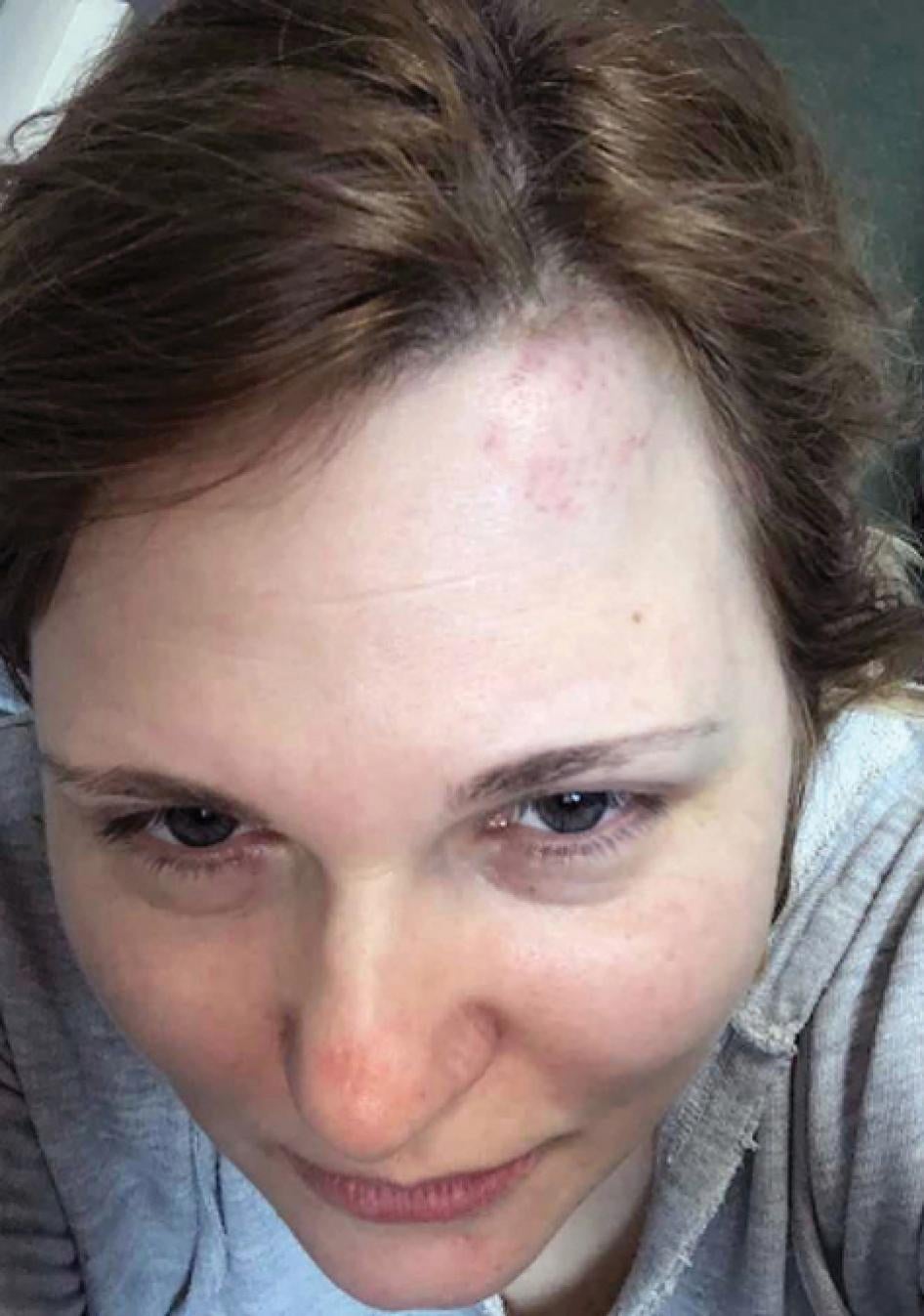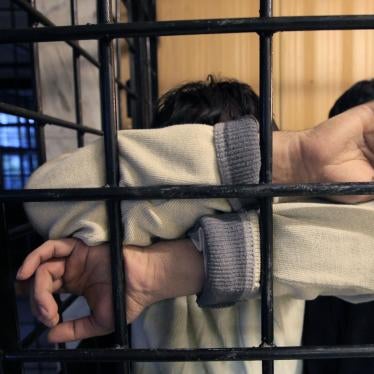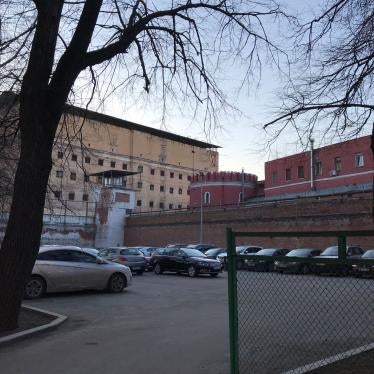(Moscow) – Last week, the Kremlin’s spokesperson dismissed a grave threat by Chechnya’s governor, Ramzan Kadyrov, against an independent outlet, Novaya Gazeta, Human Rights Watch said today. Russian authorities should immediately take the threat seriously, investigate effectively, and ensure the safety of Elena Milashina, the newspaper’s correspondent reporting on abuses in Chechnya.
Kadyrov posted a recorded video statement on social media on April 13 condemning Novaya Gazeta over a recent article alleging that local authorities’ approach to preventing the spread of the Covid-19 virus was abusive. Kadyrov’s statement made death threats against the paper, explicitly saying that if Russian authorities did not “stop” Novaya Gazeta, Chechen authorities would step up and commit crimes against the journalists.
“The Kremlin’s dismissive reaction to this serious threat against Novaya Gazeta is simply unacceptable and dangerous,” said Tanya Lokshina, associate Europe and Central Asia director at Human Rights Watch. “Kadyrov asked for a signal and this is like a stark green light to Chechen officials to act on their threats.”
Kadyrov issued the threat a day after Novaya Gazeta published Elena Milashina’s article, “Dying of Coronavirus is a Lesser Evil.” The article alleges that Chechen authorities’ approach to containing the epidemic is highly abusive and that local residents are “terrorized” to the extent that they were choosing not to seek medical assistance and to risk dying from the illness, rather than to expose their families to the risk of the authorities’ stigmatization and reprisals. The article refers to, among other things, Kadyrov’s earlier public remarks equating people who break quarantine rules and infect others with coronavirus with terrorists and urging that they be thrown in pits.
In his April 13 statement, Kadyrov accused Novaya Gazeta of “malicious” lies and demanded Russia’s federal authorities to “stop these non-humans.” He also delivered a veiled but unmistakable death threat: “if you [federal authorities fail to act and] want us [Chechen officials] to commit a crime and become criminals, just say it. One [of us] will take on this burden, this responsibility, will be punished in accordance with the law, spend some time in jail, and then walk. Don’t make bandits and killers out of us…”
On April 15, the Russian Prosecutor General’s Office in Moscow ordered the blocking of Milashina’s article, alleging it was “unreliable” but providing no detailed explanation. The article remains blocked online.
The Presidential Human Rights Council’s media freedoms committee called the blocking an “act of censorship” incompatible with Russia’s constitution.
On April 16, when asked at a news briefing about the Kremlin’s response to Kadyrov’s threatening statement, President Vladimir Putin’s spokesperson, Dmitry Peskov, said: “… we did look into it. Indeed, [the statement] is quite emotional. On the other hand, the [overall] current situation [in light of Covid-19] is quite emotional. Therefore, we haven’t seen anything out of the ordinary in there.” He also indicated that the Kremlin does “not deem it necessary” to publicly respond to Kadyrov.
Kadyrov’s threat against Novaya Gazeta is the latest in a long history of local authorities’ threats and attacks on journalists and human rights defenders exposing abuses in Chechnya, branding them “enemies” and “terrorists,” jailing them, destroying their offices, and forcing them to leave Chechnya.
Milashina in particular has been a target of vicious threats by Chechen authorities since exposing their anti-gay purge in spring 2017. In February 2020, a group of assailants beat Milashina and Marina Dubrovina, a human rights lawyer in Grozny. The Kremlin has not reacted to or ordered an effective investigation into the attack, which bore the hallmarks of Chechen leadership endorsement. The Kremlin also ignored numerous public statements by high-level Chechen officials, including Kadyrov, portraying journalists and human rights defenders as “enemies” and “terrorists.”
“The Kremlin is using the Covid-19 crisis as an excuse to give Kadyrov a pass on an obvious death threat,” Lokshina said. “This is cynical and short-sighted. If Moscow doesn’t credibly seek to end Chechen authorities’ threats and attacks on journalists and human rights defenders, the Kremlin will be effectively complicit in any new heinous attacks.”









